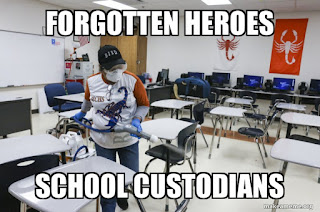Real work of rebuilding pandemic-levelled economy has yet to begin
It proved relatively easy to shut down much of the old economy. The new economy will be much more difficult to restart and rebuild.
Governments have no recent experience with leadership on this scale. They find it far easier to provide aid than to propel activity, just as it’s simpler to spend than generate what to spend.
Wednesday’s briefing by B.C. Premier John Horgan signified the start of his most important chapter. How he manages these next months will affect our lives and his government’s.
What Horgan aims is to translate a horrible set of circumstances into the best possible outcomes. His go-slow message – our new normal of six feet of separation in a social-distanced economy – is orchestrated with different instruments entering the symphony in discrete movements. Most are out of tune and the musicians are rusty.
We’ll get our hair and teeth and bad backs looked after soon. Strangely named “elective” surgeries – can’t recall ever offering to have one – will get scheduled. School will be voluntary, child care will resume. Campgrounds will cautiously open. Retail outlets will try.
Concerts and pro sports are future considerations. Handshakes are a thing of the past.
In two short months that have felt like an eternity, COVID-19 has swiftly suppressed business and social life. The induced coma that is our economy has to be reawakened, but the patient’s metabolism has changed.
AS THE WIRED CAPITALISTS TOLD US IN THE NINETIES THE FUTURE IS THE SERVICE ECONOMY
In short order we have become a society of remote work, of online shopping, of deliveries, of take-out, of using technology to counter the human nature to physically connect – and of living in fear of the consequences of a contagion that is flattened statistically but not actually.
Many jobs, businesses and sectors are ruined beyond repair. Personal finances harmed by market crashes will force many to work longer. There will be a semi-permanent gap that won’t be restored readily. What replaces them requires ingenuity, nimbleness, rapid trial and even more rapid walking away from error. These are not particular attributes of governments, yet governments cannot simply yield to markets when public safety is still at stake.
The B.C. plan appears to sanction a doubling of our social contacts – what it calls 60% of the “old normal” – and of the overall risk of coronavirus. What the plan lacks is a great deal of encouragement; like much of what government has delivered in recent months, it’s about boundaries and restrictions and more about don’t than about do.
While it is true that the province didn’t initially close as many things as did others as the pandemic arrived, we are not being dispatched into the Star Trek holodeck. The lid is opened to release some steam but not taken off the simmering pot. We are looking at restraint for 12 to 18 non-vaccine, non-antiviral months, there will be some steps back before two steps forward are taken, and what that will mean for businesses and for daily behaviour is a guessing game.
STATE CAPITALISM, ON THE ROAD TO SOCIALISM WHY STOP AT RECONSTRUCTING THE OLD ORDER BUILD THE NEW SOCIETY NOW
What it requires from government will be a genuine recognition that businesses small and large will be in the same need as those they employ. The investments that people and companies have made in government through their tax support for the greater good now has to be reinvested back into them for this new greater good, to spur an enterprising spirit in dispirited times and to extend the triage to ensure the portion of our identities that associate with work do not disappear en masse.
Wednesday’s outline sets a framework for guardedness. Next up, at some point not far from now, will have to be a call to action.
Kirk LaPointe is publisher and editor-in-chief of Business in Vancouver and vice-president, editorial, of Glacier Media











